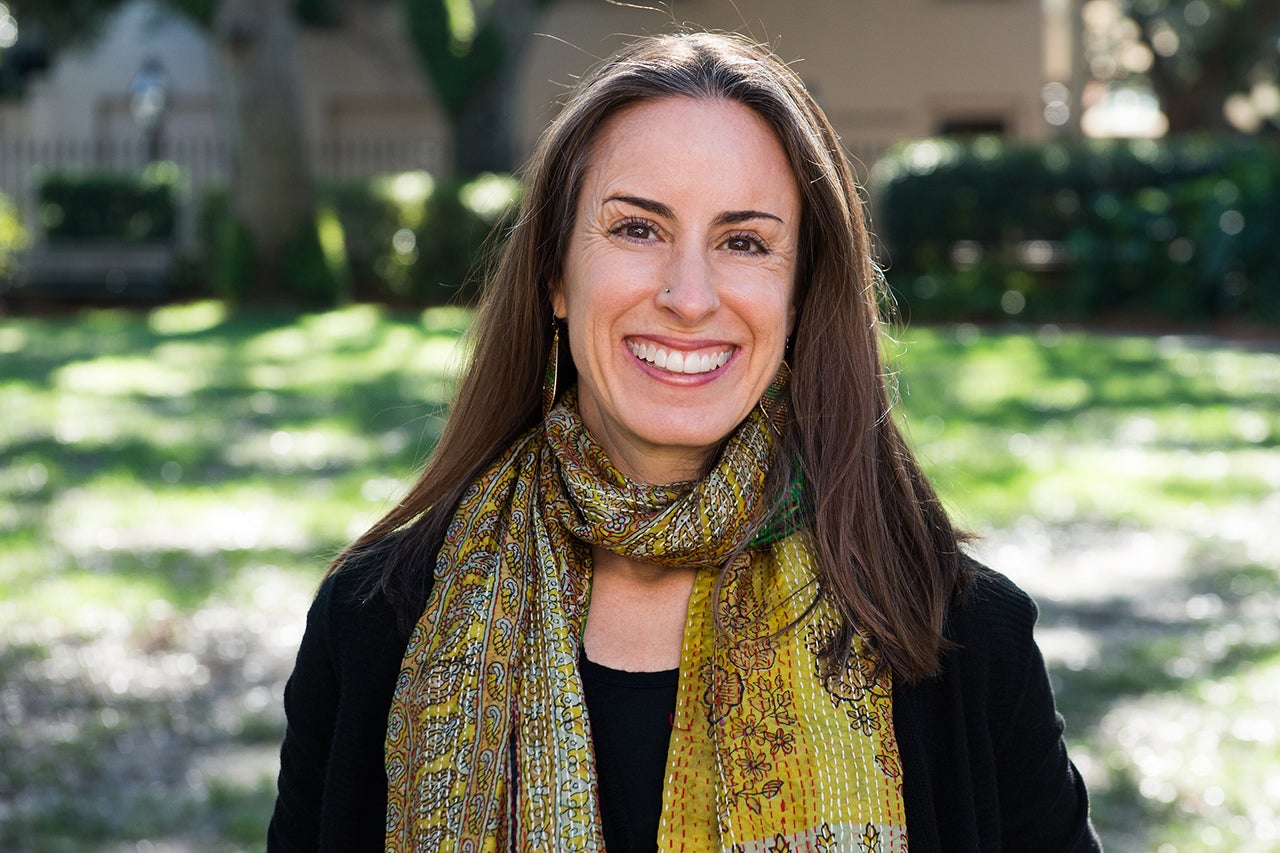As soon as she stepped on the College of Charleston campus, Kris De Welde knew she was in the right place. It was early spring of 2017 when the College invited her to interview for the director position in the Women’s and Gender Studies (WGS) program.
It did not take her long to decide that this is where she wanted to be.
“When I came to the College of Charleston for my interview I was captivated by the dynamic and exciting WGS curriculum, the intellectual curiosity of the students, how welcoming all the faculty and administrators I met were, the engagement from the Community Advisory Board, and just how vibrant all aspects of the campus and community seemed to be on issues that are important to me,” she recalls.
Prior to Charleston, De Welde was an associate dean of University-wide Programs and Faculty Engagement in Undergraduate Studies at Florida Gulf Coast University. She liked the job, but it did have its drawbacks.
“I was serving in a purely administrative role at Florida Gulf Coast University as an associate dean,” says De Welde. “I did not have opportunities to teach or connect with students in meaningful, sustained ways, and this was wearing on me despite how fulfilling my job really was.”
De Welde officially joined the College in fall 2017. Now, she is not only teaching classes, but also working with students and others to advance the WGS program for both the campus and Charleston community.
To find out more about De Welde, The College Today posed four questions to her:
What are your goals for the WGS program?
The program has a robust foundation and strong commitment from affiliated faculty from across the College. It started over 33 years ago when a single Women’s Studies class quickly laid the groundwork for the solid program we see today. None of this would have happened without the hard work and dedication of many people who ushered in the minor (1989), and were committed to development of a major (2008). Then, thanks to the devotion and tenacity of Alison Piepmeier and her successor, Cara Delay, the WGS major has evolved into one of the premier programs in the region.
I want to honor their work by taking it to the next level through innovative courses and life-changing experiences for our students, important and influential scholarship from faculty, and engagement with social justice issues in our local, regional, national, and international communities. Through collaboration with faculty and community leaders I hope to provide students with transformational experiences that will in turn equip them with skills to launch successful careers and lead fulfilling lives that reflect their purpose. We must live with purpose.
Your Ph.D. work is in Sociology. What attracted you to that field?
Sociology chose me, actually. I graduated as a first generation, non-traditional student in my late 20s with a bachelor’s degree in Psychology. I knew that I needed to be on an intellectual path for whatever came next, and was fairly certain that would be in the field of psychology. A faculty mentor suggested I apply to graduate programs in psychology and sociology given that I was interested in studying cultic religious groups and their effects on individuals and families. The most promising opportunity for a full tuition waiver and a teaching assistantship came from the sociology Ph.D. program at the University of Colorado, Boulder (where I had earned my bachelor’s degree). So, I took a leap of faith, even though I had taken only two sociology courses as an undergraduate.
After the second semester I was converted, and I never looked back. It was as if there was this sociological part of my consciousness that was waiting to be awoken – and it was, with an intense bolt of awareness that was also electrified by feminism. I felt awake for the first time in my adult life. I abandoned the study of cults early on in my graduate work and instead immersed myself in the sociological study of gender-based violence and women’s resistance to violence.
Do you think that the current political climate has changed the way we should deal with gender issues and discussions?
I do not think that the current political climate has necessarily changed how we should deal with gender issues. However, I think the current political climate has made these issues, which many of us have been studying, teaching about, and struggling for change on, more urgent to tackle. There is a palpable hunger in students today to understand gender (and other) issues from multiple perspectives, in part because these issues are so prominent in the news and on social media.
I believe it is our responsibility as educators to expose students to a wide range of diverse viewpoints and equip them with skills to navigate a complex and rapidly changing world. The current political climate does not change that, but it does bring into relief the exigency of it all. And, I hope that I model for students the significance of embracing mutuality, interdependence, and respect when discussing these issues. In my opinion, the current political climate is falling short here.
What is one thing that surprised you most about living in Charleston?
Fall! I really enjoyed the cooler weather that I was not expecting until later in the winter. Remember, I’m coming from Florida; boots and scarves don’t usually break out until February, and for only a day or two!






